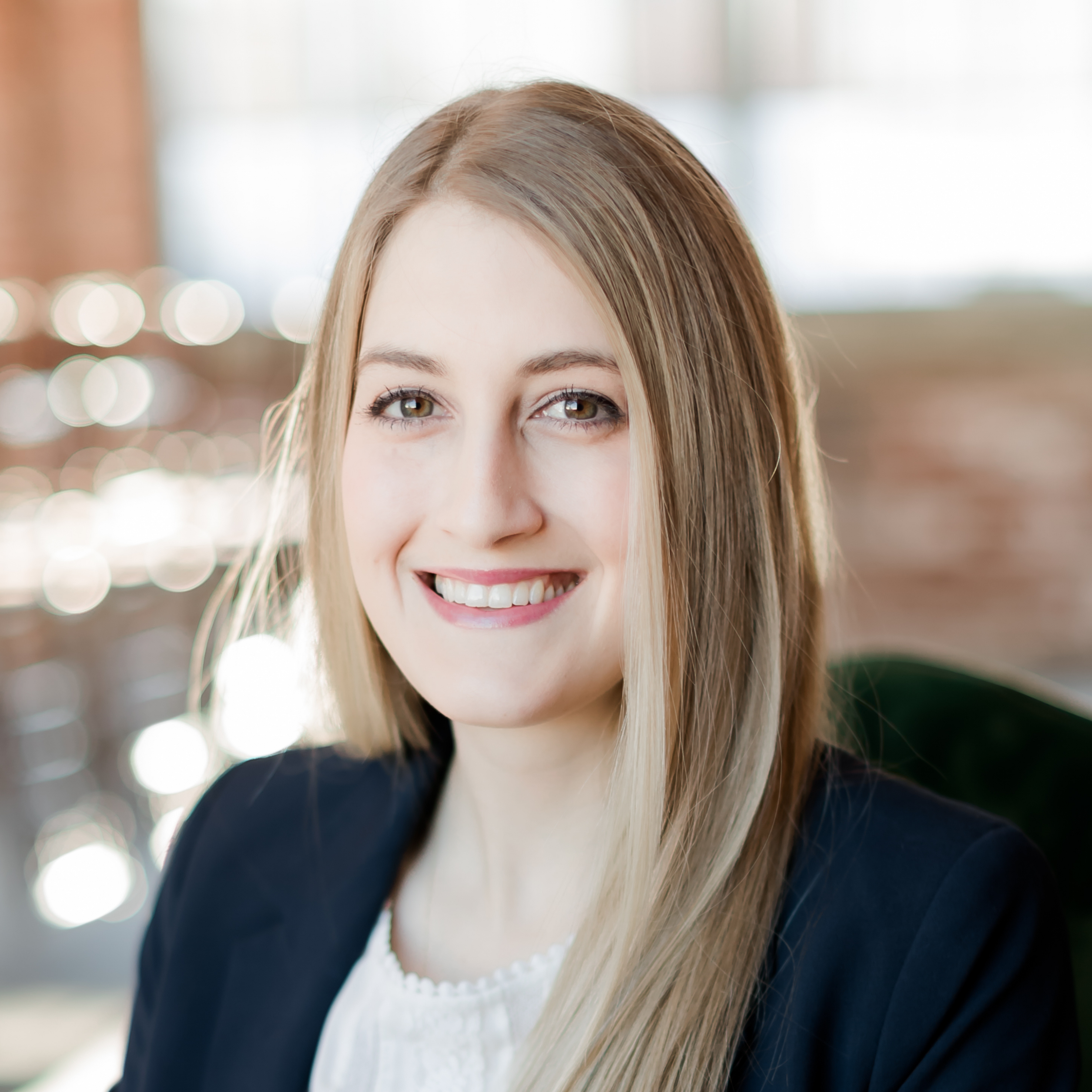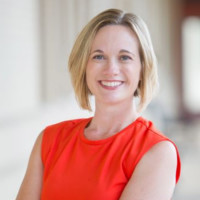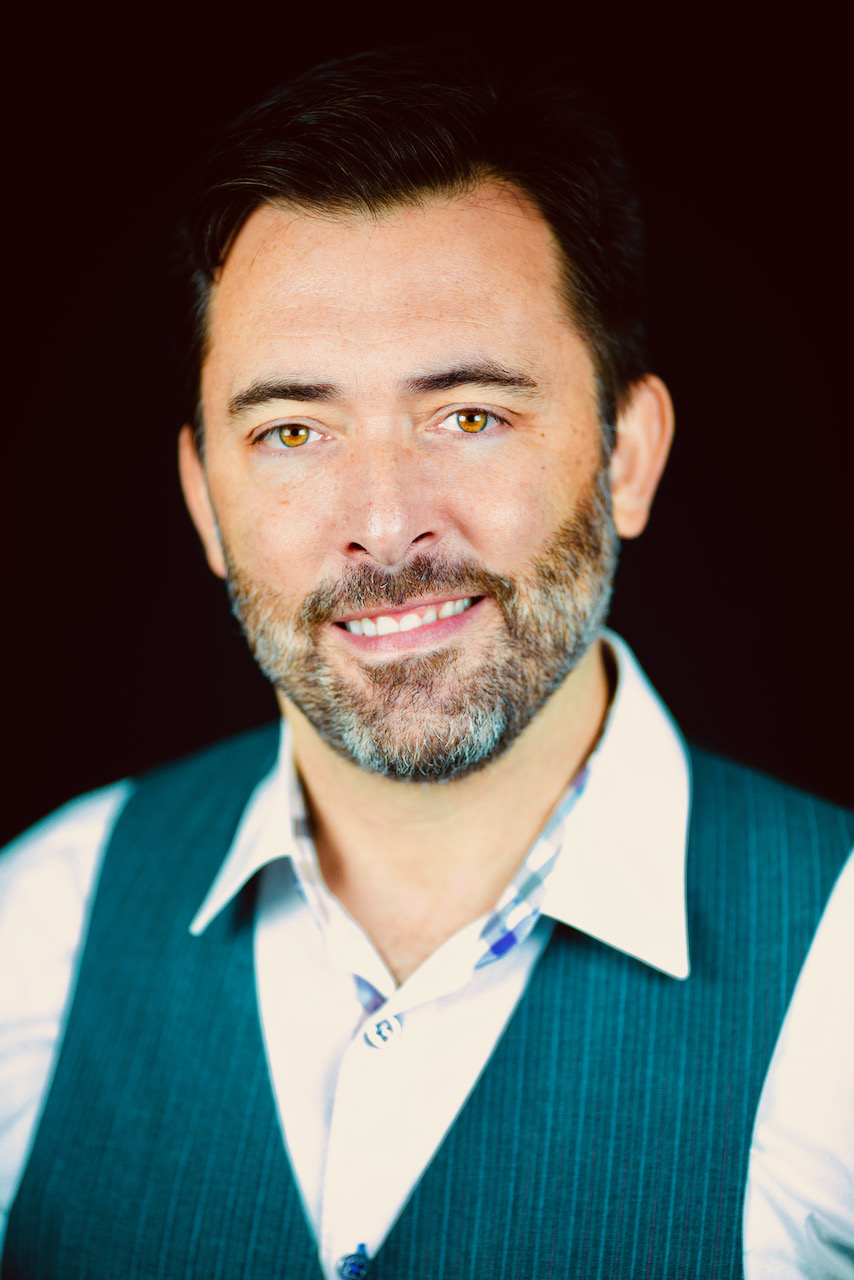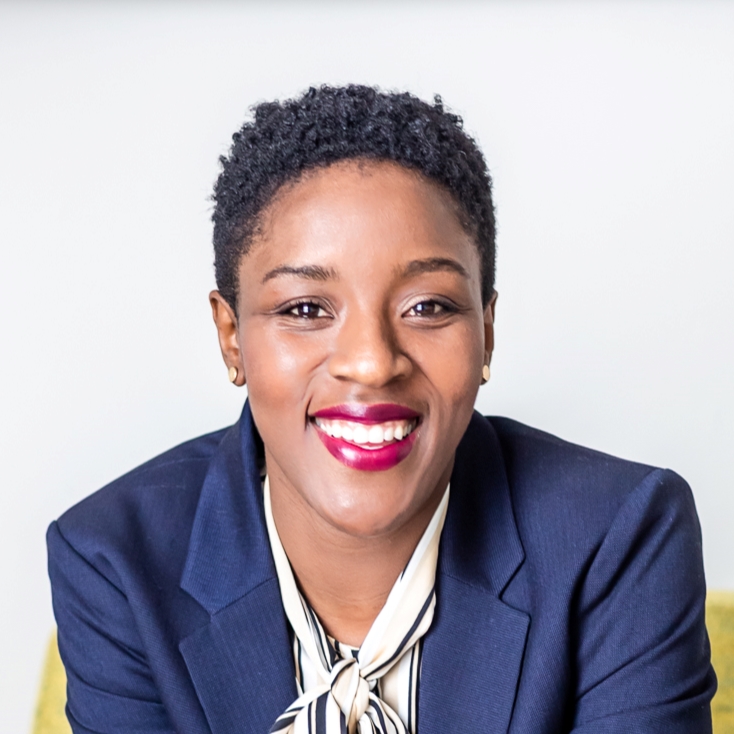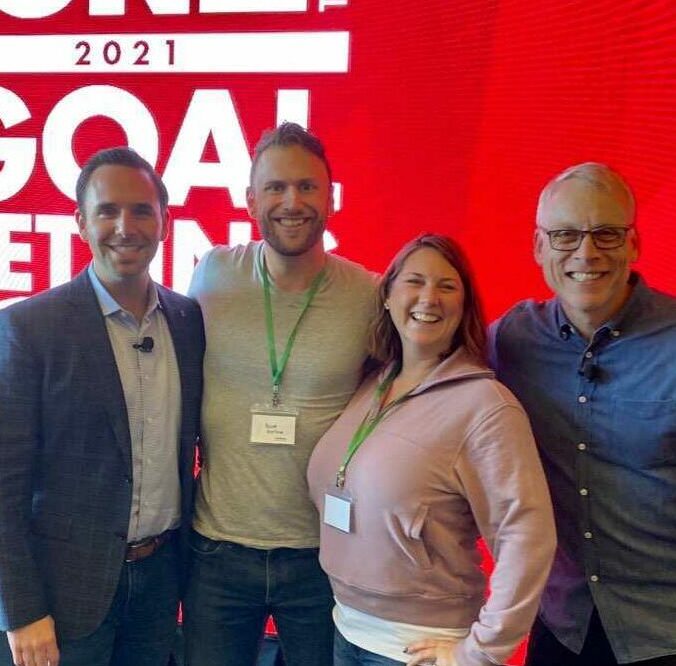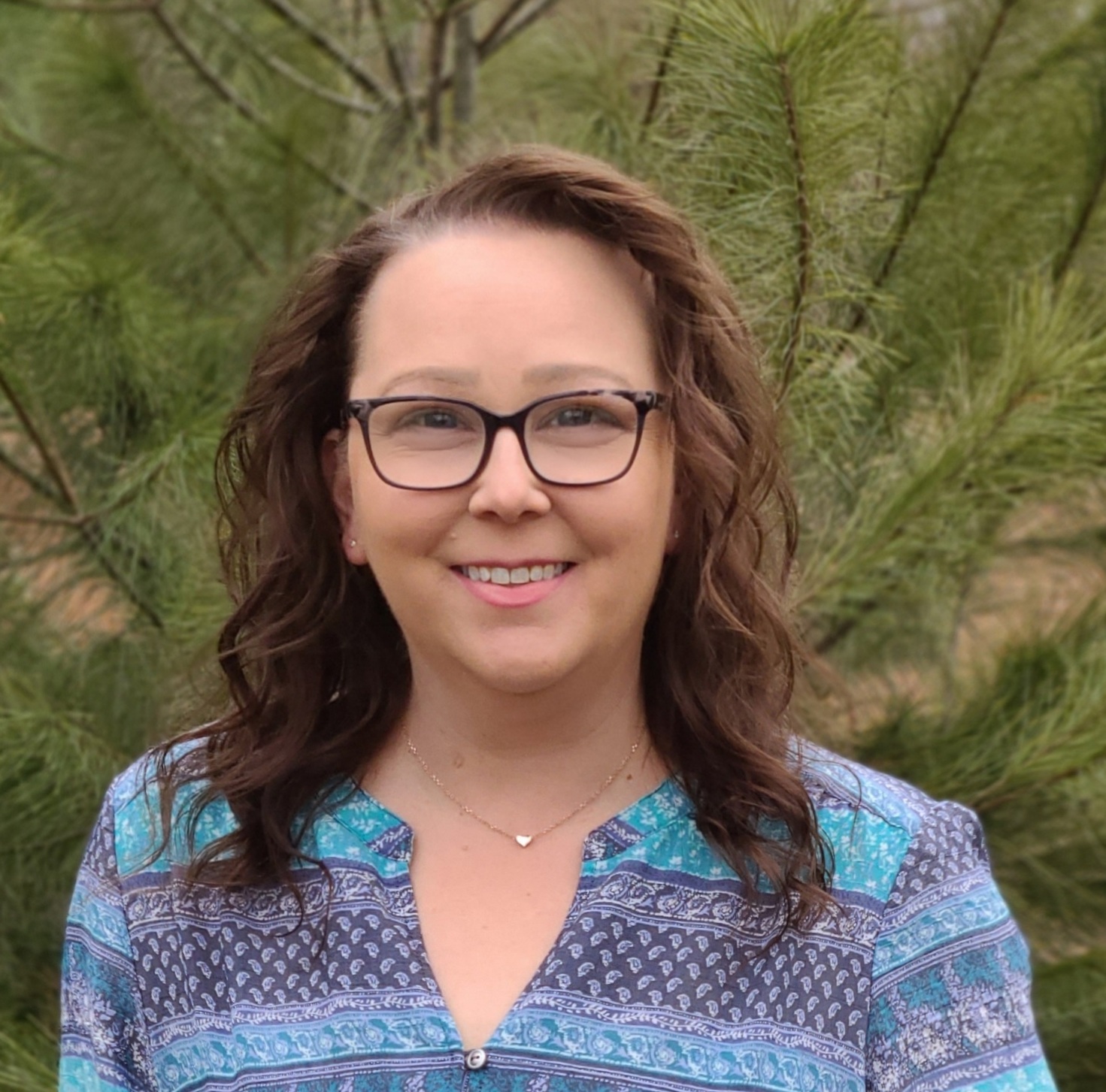Listen
Guest
on this episode
Our mission is to change the way the entire world works, and that starts with you! Do you have your next vacation on the calendar? Are you preparing yourself and your team for a break? Taking a month (or more!) off of work is possible. It’s all about assessing your priorities and being intentional.
Scott has returned from his very own intentional hiatus! After a month-long, much-deserved vacation in Greece, he is back and ready to share takeaways from his trip and advice from his longest time away from HTYC.
Samantha, HTYC’s content manager, joins Scott to gush about Greece, give the team’s perspective on the CEO stepping away for over a month and to pass the podcast baton back over to our beloved host!
What you’ll learn
- What it really means to thrive at work
- Scott’s biggest takeaways from his month in Greece
- How to set your team up for success so you can take time off
- The importance of being intentional
- What the team thought about Scott stepping away from HTYC for over a month
Scott Anthony Barlow 00:01
We have talked a lot about what it takes to thrive at work as opposed to just do work, come in and maybe it's good for you, maybe it provides paycheck, maybe it provides some growth, maybe... but that's different than thriving, it's different than extraordinary. It's certainly different than what most people have.
Introduction 00:29
This is the Happen To Your Career podcast, with Scott Anthony Barlow. We help you stop doing work that doesn't fit you, figure out what does and make it happen. We help you define the work that's unapologetically you, and then go get it. If you're ready to make a change, keep listening. Here's Scott. Here's Scott. Here's Scott.
Samantha Martin 00:49
Hey guys, this obviously is not Scott. This is Samantha. I'm the content manager here at Happen To Your Career. And this is my first time on the podcast, woohoo... dance party.
Scott Anthony Barlow 01:01
Dance party.
Samantha Martin 01:02
As you just heard the voice of everyone's favorite person. He is back. And he is joining me. So welcome back to your podcast, Scott Anthony Barlow. I'm happy to be hosting.
Scott Anthony Barlow 01:15
I'm glad to be back. Thank you for getting outside your comfort zone and getting on the first podcast ever that you're hosting. I appreciate it immensely. And I'm excited to do this.
Samantha Martin 01:28
That is what we do here. We get outside of our comfort zone. And at first, I said, "No, I'm behind the scenes." But here I am.
Scott Anthony Barlow 01:36
You are no longer behind the scenes.
Samantha Martin 01:39
So... yes. The last we heard from you on the podcast, you're heading off to Greece, leaving us to be the leaders of Happen To Your Career, we're still around, we're still kickin', you've returned from Greece. Tell us about your exciting trip to Greece with your family.
Scott Anthony Barlow 01:57
I have returned, it was so much fun. You know what? Greece was... it was so much different than what I thought it would be. I'd never been before then. I think you and I have had this conversation before. But have you been to Greece?
Samantha Martin 02:10
I have not. We looked at it for a honeymoon destination.
Scott Anthony Barlow 02:15
That's right. I remember you saying that. That's right. So wonderful experience overall, I'll say that. And it was so much, I've probably had this conversation 50 times or so in the last couple of weeks. And I'm still struggling to describe what Greece was like, it was so beautiful, and the scale was so staggering. And what I mean by that, is the way that Greece was formed, it had lots of volcanic activity, you know, earthquake type activity. And the result is you've got these islands and the mainland where everything just like juts out of the ground straight up. And, you know, you and I have talked where I'm from Northern Idaho. And I'm no stranger to mountains, right? There's lots of large mountains in Northern Idaho. However, these were so much larger, so much larger, it was absolutely crazy. And it's just so beautiful everywhere we went. We went into, by the way, you can do the entire country in four hours, like, you can drive from one side of the mainland country, to the other side of the mainland country in about four hours. So it depends on, you know, how you go and everything. But we did that. And on one side, it looks very much like Italy. It's so Italian inspired. And just the countryside looks like parts of Italy, kind of the more Naples type region, maybe in some other areas of Italy. And then the other side is, well, the other side is towards Athens. It's flat with fewer plateaus and everything like that. But then you go into the islands, and we spent a bunch of time in the Cyclades, I think is how we say it, I'm not 100% sure on that, don't quote me. But basically it's that circle of islands, the one that you hear about in The Odyssey, and all of those fables and everything like that, all of that history, it is that set of islands. So Cyclades means circle. It's the circle of islands there. And it was really fun just to... we were on a catamaran part of the time for about a week. And we lived on that. And we went from one island to the next, to the next. And it was really wonderful and really unique. And that's part of what we were looking for.
Samantha Martin 04:35
You're on Skipper, right?
Scott Anthony Barlow 04:36
We had our own Skipper. Okay, so I will be honest, like I had never done that before. So when we decided to do this, so many people are like, "Oh yeah, I've watched these yachting shows like on Netflix and stuff like that, and like, you would totally like..." I've never seen these shows before. But they're like, you know, that looks like it costs a lot of money. And I thought the same thing initially, and what I will tell you is there's a huge massive range, massive range, like you can pay as much as you want for a single night or a single week of a boat. You can get a, you know, 200 plus foot yacht if you want and, you know, pay $400,000 a night like that is very possible. And we also found that, you know, if you want us to go on a much lower end like that, that's very possible too. So I think we probably spent around, I think is around $10,000 or so for chartering the boat, having the skipper, and even fuel and everything. And this was a decent sized boat, it was like 45 foot catamaran. So not a small boat by any means, too. But all of that to be able to say that I wasn't sure if that was going to be within the budget we had planned for the trip, and it completely was. It just took some research and took figuring out how we might do that. But the reason we did that, the reason we decided to do a catamaran in the first place, I think is kind of an interesting story. Because we've learned over the years, as we've gone to different countries, and as we've visited, that we really love home basing in one area. And what I mean by that is like we'll rent an Airbnb for an entire month. And we'll stay there, and then we'll go and we'll take, you know, day trips to various different places. And that's been fun for us, because it allows us to go deeper into the culture. So that works for us, doesn't work for everybody. Like we have friends that love to roadtrip at all over the place. We just don't like the idea of packing up your suitcase every day. And then unpacking your suitcase every day and all that. So it was a challenge, because we realize there's like 6000 islands in Greece and...
Samantha Martin 06:46
I know that.
Scott Anthony Barlow 06:47
So you could literally spend your entire rest of your life going from island to island to island and still never see them all. Yeah, that it blows my mind. So 6000 plus islands in Greece. And we wanted to see 6000, but at least a few of them. We're like, well, how are we going to do this? Because we know we have a better time for us when we homebase someplace. And so that's where the idea is like, "well, what if we rented a boat?" and we were kind of opposed to the idea at first, but then started checking out, it's like, well, this fits all the things we want. It was unique, it was a great time with the kids, we got to see and do things that most of the time as a tourist someplace, you just don't get to do. So it just met so many other criteria.
Samantha Martin 07:34
And that's what you guys usually do is go and plunk down in one spot and experience different countries, right? So do you feel that you get more of a locals experience doing that? Do you get to know people's thoughts, things like that?
Scott Anthony Barlow 07:49
We do? So yes, is the short answer. The longer answer is that, like, I'll take when we went to Paris. So I literally got a co-working space. This was not a vacation as much as it was, we just wanted to go and live in another country for a month. Actually, I guess we were gone for six weeks. But I rented a co-working space, like, we shopped at the grocery store, and you know, the bakeries and everything else that was around there. And it just, we wanted to feel like "hey, here's what doing life is like in that country." So I will say that this was a little bit of a different trip for us. We still wanted to pull in the elements that caused us to have a better time as a family, like home basing out of one area, wherever we could. Also, this was actually a vacation for us. This was the first time, and you and I were talking about this just a minute ago before we hit the record button. But this was the first time that we have ever stepped away from our work for a month, like, probably since I was like 16, honestly.
Samantha Martin 08:52
Yeah. Because you've always been somewhat of a world travelers, you and your family. You have an entire, like, blog dedicated to that. But you've never stopped working when you've stepped away. Is that right?
Scott Anthony Barlow 09:06
Yeah, that's absolutely right. We would take large chunks of time. Like we might take two weeks while we're over there and just dedicate that to being off and exploring. But we've never been completely off the entire thing until now. Which, by the way, the blog you're talking about is familypassport.co.
Samantha Martin 09:24
And you put all the budgets you and I are talking about, how much the skipper costs and everything. You've put all that on there, don't you?
Scott Anthony Barlow 09:29
Yeah, yes, we do. It's a side project for us. We don't really make a lot of money out of that. But we've continued to do it just because we've really enjoyed it. Both my wife, Alyssa and I. And also it's a wonderful way to just be able to share with people that we meet or friends or like we'll meet people in other countries and be like, "Oh yeah, like the place that we went to, it's actually on our website: familypassport.co You can go there. And then, you know, click on the link and get the Airbnb that we had, or click on the link and see exactly what it cost us at the time."
Samantha Martin 10:03
So, like you said, you haven't stepped away from work, and especially your beloved Happen To Your Career ever. And I know that was getting out of your comfort zone. I could tell in the last few days before you left, you were getting a bit antsy...
Scott Anthony Barlow 10:18
I was, like, getting antsy.
Samantha Martin 10:20
So how was that experience for you from the beginning to the end?
Scott Anthony Barlow 10:25
It was wonderful. I've learned in the past, it takes me almost a full week to decompress. I don't know, have you had that experience before? Like, how long does it take you to decompress and go into, like, vacation mode? Do you think?
Samantha Martin 10:39
Yeah, definitely a few days to stop my brain from the normal wake up. What do I think about things? So I have to go into vacation mode. And we've noticed if we try to do too short of a vacation, it's not much of a vacation at all, you know, you're focused on traveling, that wrapping up, traveling there. Okay, finally relaxing. Oh, packing up, letting go. So completely see that. So how long would you say that it took you to wind down?
Scott Anthony Barlow 11:10
Every bit of four or five days, I think, maybe even a little bit... like that, if I don't know, not to get too nerdy about it, but for me, it was almost like decompression stages in some way. So four or five days in, I was starting to adjust to a different schedule, like my mind is getting freed up. And then it was probably another two and a half weeks in before really settled into finding... everybody probably experiences this differently. However, for me personally, they eventually I get into this mode, where I find this creativity again. And I start to have just, like, ample flow of creative ideas that I just can't stop. And so that becomes a signal for me that I've sort of broken through that barrier. And you know, reset, if you will. So it probably took two or two and a half weeks into it, I don't remember exactly when it was before I started experiencing that again. So in this case, I'm really glad we're off for a full month. Yeah, I'm slightly jealous that only takes you a few days to...
Samantha Martin 12:15
Well, I don't know that I've ever given myself, like an actual extended, the longest time away from work I've ever had was maternity leave, which everyone knows is not a vacation.
Scott Anthony Barlow 12:27
As it turns out, no, that is not a form of a vacation probably.
Samantha Martin 12:31
But I don't know if you've even ever taken a week off.
Scott Anthony Barlow 12:34
Oh, we're gonna have to change that.
Samantha Martin 12:36
I know. And just so that, you know, because I'm like, "Oh, I'll just work Monday, or I'll just work Friday", you know, to... 'cause the week is intimidating.
Scott Anthony Barlow 12:44
So that's so interesting. I didn't know that about you. Like that's totally going to have to change for all the reasons we just talked about. And at the same time, that's a big reason why we did this too, because we've, behind the scenes, we have this discussion all the time, but for the benefit of everybody else here, we have talked a lot about like what it takes to thrive at work, as opposed to just do work, come in, and maybe it's good for you, maybe it provides paycheck, maybe it provides some growth. But that's different than thriving, it's different than extraordinary, certainly different than what most people have. And we've realized that one of those things that we believe is worthwhile for figuring out how to do it, and it was not easy for us to go in, take a month off and set up our company, set up our organization to be able to do that. But we felt it was worth doing not just for myself and Alyssa who got to benefit from it, but also, what if we could set up the entire business so that every single person eventually gets to take a month off. And we don't know exactly what that's going to look like. But we realize, like, if we can, first of all, create a stronger business that allows us to operate from a different place when we're considering what is right for our people, what is right for our team. And we also feel very strongly that we, as an organization, need to be the role model for other organizations out there for things that they don't believe are possible. Like that's not going to work at work. Like that's not going to work in my workplace. I heard that so many times. And we want to be able to prove that it can work in many different ways. So this is our experimental say, for how we're doing this on our own team.
Samantha Martin 14:36
Right. So back to your trip. How was your return? Was that easier or harder than leaving?
Scott Anthony Barlow 14:48
It was so much harder, actually, really was harder in ways that I didn't anticipate. In fairness, I did not think through at all that "oh, I've never done this before where I'm coming back from an entire month", and that's actually over a month, it's like 33 or 34 days, just never done it before. So that should have been my first clue that okay, maybe I should consider this differently than what I've done in the past. In the past, it's been really easy for me to just integrate back in. And it was more difficult this time around. Difficult because it felt hard to just go right back into working and focusing on one thing for a really long period of time. I didn't expect that. Like maybe I should have, I don't know. Now I know for next time. But that was... yeah, I was in island mode. I was on island time. Island time is real.
Samantha Martin 15:42
You're on island time.
Scott Anthony Barlow 15:44
Yeah. So there's that side about that, that I just didn't anticipate. But also, there were some things that I did anticipate, or at least hoped for the creative ideas, as we're recording this right now, like we're coming off a number of ideas sessions that we've done with the whole team. And I just feel like I could keep going for days, like the creative energy has returned in ways that I forgot that I had. So that was really wonderful. I know that it doesn't make sense for everybody to just, like, take a month off next month at all. But I think that is one of the things that is worth doing. And probably... we should probably talk about here too, that like it literally for us to be able to take a month off like that. It took three and a half, almost four years worth of work, to be able to do that thing that almost nobody else gets to do. So we're really, really fortunate that, one, we have, like people like you, Samantha, on our team to where... you've got our back when Alyssa and I stepped out. But on the other hand, too, I want people to recognize that, like, this is doable for almost anybody if you're willing to put many, many years of work into it. It didn't just show up, we didn't just decide we're going to take a month off it literally... We made the decision about four years ago. And then from there took almost four years worth of work to be able to do it.
Samantha Martin 17:12
Your last episode before you left is "How to be more intentional". Obviously, it's all about intentionality. But you are probably one of the most intentional people I've ever met in everything that you do.
Scott Anthony Barlow 17:23
Thank you.
Samantha Martin 17:24
So, you're welcome. I am not, I never think that anything that you do comes easy, because I know tons of planning goes into it, you and Alyssa both, we have a ton of episodes of you two talking about goal setting and things like that. And those are always inspirational, but it just shows that if you have a goal, and it might take a while, but you can get there. So I think it's pretty cool that what you guys have done, that you worked for that many years, just to be able to take a month off. I feel like some people might have given up, you know, two years and been like, yeah, it's not gonna happen. But you said, four and a half years?
Scott Anthony Barlow 18:00
Three and a half, almost four years. I don't know the exact number of months, I haven't gone back to look, I could probably figure it out. But so I had this fear in the back of my head, like, maybe it won't be that great. Maybe we'll just have to chalk it up to an experiment. But, you know, we came back and it's like, wow, this is revitalizing in a way that is really good for the productivity of both myself plus the organization. It's like, wow, okay, well, how do we do more of this? How do we double down? And we have that conversation like for things that are working, how do we do more of it? How do we place more emphasis? How do we place more energy and focus on that thing that is working? Well, this is something that I am adamant that I want for myself, but also for our team, too. I really don't know yet what amount of time that that's going to take for us to figure out how to do that for our team as a whole or how long it's going to take for us to build the versatility in our team and in our business and in our organization to be able to do that, but man, it feels drastically different.
Samantha Martin 19:12
Yeah, I could tell that your creativity was like sparked when you're away, which... I mean, stepping aways is always so great for your mental health. So a month away in Greece, with your kids and your wife, that was probably such a nice reset.
Scott Anthony Barlow 19:29
It was pretty fantastic. So we're gonna get you that week off. And then we'll figure out how to raise you some. No promises as to how long this is going to take or anything like that, but yes, something we totally need to do, totally need to figure out what that looks like and how it looks and how it's going to work within our team.
Samantha Martin 19:47
So on the team side for when you guys were away, there were a lot of positives that came out of it there. For us, I think, there was more ownership in everything that we did, obviously because we didn't have you to leave back on and say, "Is this what we should be doing, Scott?" And we didn't want to bother you in Greece, and we did not bother you in Greece, did we?
Scott Anthony Barlow 20:07
You all are never a bother. So there's that.
Samantha Martin 20:11
We did not try to get a hold of you.
Scott Anthony Barlow 20:12
Nobody contacted me in Greece whatsoever. Bothering or otherwise.
Samantha Martin 20:19
It was... but also just the trust that we knew you had in us to step away, very refreshing. And that was just encouraging. And I think that it was a good thing for our entire team as well as you. Even though we weren't in Greece.
Scott Anthony Barlow 20:36
It was really fun to come back and hear the stories about what worked so well. And also some of the things that I think actually the team felt like didn't work well, but if forced different situations, that then led to the team working together in a much better way after going through figuring out like, how it's going to work and what's going, like, what's not working, that was really fun to be able to come back to, I really immensely enjoyed that. Also, here's something that I don't know if we've talked about or acknowledged as a team, but I just realized that the other day, while we were gone, we grew in almost every metric. There were some goals that we didn't hit that we thought we would do better on during that time. But we still grew in almost every single metric, except for maybe one. Like, that's pretty phenomenal.
Samantha Martin 21:33
I think I shouted that out in Slack, possibly.
Scott Anthony Barlow 21:36
That's cool.
Samantha Martin 21:37
Because I was getting excited. I was like, "We can do this." But we're excited to have you back again. We're happy.
Scott Anthony Barlow 21:44
Thank you. Well, if we're gonna get... like if I need to leave for a month to Greece, again, in order to help us reach more people and grow in every metric, like, we can figure that out.
Samantha Martin 21:58
So I know we've talked about before that you don't really like the term work life balance. So when people are looking for flexibility to be able to do, you know, the things that you want for your team to be able to take off for a month and go to Greece, what do you say that they should be looking for or planning for? Instead of just saying, "No, I need better work-life balance."
Scott Anthony Barlow 22:23
You're right. I don't like the term work life balance. Balance implies that there is some level of, I'm gonna say, equity or equitability at all times for different areas in your life. And that is a falsity. That's a thing that can't ever happen. And I would argue that it shouldn't ever happen. So instead, I would say, it's a much better goal, and has served me much better and other people that I've seen implemented in their life to focus on, "how am I giving the right amount of time for me in my situation for right now, and the right amount of energy, and right amount of hours, and all of those things, right amount of bandwidth for what's going on, and what is important right now." So it's not even work life integration, which is another term that has popped up over the last, you know, five, eight years or so. And I would say it's even less about integrating your life 100% together, and it being fully inseparable. But instead, I think it's more about, how do you assess what is the priority right now, like, is it the priority to be able to spend a maximum amount of time with my family? My grandma passed away a couple of years ago, and we knew it was coming. And it was really important for me to spend a lot more time with my grandma. And we definitely have lots of things going on here at Happen To Your Career, we'll always have lots of things going on here at Happen To Your Career. However, at that time, at that moment, in that space, it was important for me to devote less of my bandwidth to what I was doing, and the mission and cause that we serve, and more of it right there with my grandma. So that's, you know, one example out of many. It doesn't always have to be, you know, a relative, like, as they're passing. Instead, it can be like, how do I spend more time with my kids right this moment, or it can be, we have this huge project that we're all going to be working on, and is really critical to the work that I'm doing and the cause that we're serving, and that's coming up in September, like how can I plan on giving more of my bandwidth to that in that moment, in that time period. And so I look at it much more as what is the right priority for this time, the season in your life, what is going on currently, like, recently, right before... Okay, so we have, like, a test run, I will say we had a test run a little bit for me leaving, because I got COVID. And my whole family got COVID right before we left. So I was planning on working during that entire time. And then boom, like, just couldn't even stand up. You know, I've heard many, I don't want to make light of the situation at all, I've heard many accounts of COVID, where it's like, yeah, you know, it wasn't that big of a deal for us personally. But for me, like, it took me out solid for a whole two weeks, and I couldn't function for two weeks. I'm like, "What is going on? This is crazy." And, you know, that was our trial run. But at that moment, it would have been very bad. I even tried to do it. I've been tried to like, come to meetings and stuff for a short period of time, and you are bringing down the entire meeting. Get out of here now.
Samantha Martin 25:53
We're like, "Scott, is your zoom frozen?" And you were like, "No, I'm just standing here, thinking." We were like, "Go back to bed."
Scott Anthony Barlow 26:02
"Please don't be here right now." Yeah. So it would have been absolutely the wrong decision for me to keep going with that. And so I'm trying to give you a variety of examples. But that's very much how I look at it, like what is the right priority for this time, and a lot of times you can plan ahead on things like that, like we can assess that, you know, I don't know, kids or grandkids are coming in the future, like that would be a time where it might be important to devote more bandwidth to that. Or I have teenagers, at some point, they're going to be out of the house. And, you know, Greece was important for that reason we wanted to devote, like, as all three of them are moving into teenage years, wanted to devote more of that type of time in that moment. And it was the right thing. And we had the plan almost a year ahead to be able to do that. And take a month off from work almost three, over three years at.
Samantha Martin 26:58
Yeah, I think a lot of the conversation around work life balance is also or is usually what's the answer to work life balance, like you mentioned in the last episode that you did before you left was, how they're testing out the four day workweek in some places, and will that allow for more time at home versus more time at work, when a lot of it's actually to do with your specific situation and your specific priorities, and your phase of life and figuring out how you can do work you love. And also spend time with people that mean the most to you. And exercise, if that's important, you eat healthy, all those things, fitting it all in, instead of, okay, four days a week, I'm in the office, the other three days a week, I am cramming in all of my family time and meal prepping.
Scott Anthony Barlow 27:45
If that's a law in a country, whether it's the US or any other country that takes away the decision and autonomy, and one of the things that we've found is both flexibility and autonomy matter a lot. So much research. So I think we're going about it in the wrong way. Where we're saying, "Okay, we're going to test out the four week work week and see if that's better than, you know, better than the five week work week", I bet we're going to find that, "oh yeah, it is better than the five week work week for so many different reasons." I would be willing to play some money on it that in many different categories, productivity, etc, we're going to find that it is better. But that doesn't mean that it is better as opposed to all alternatives. And that doesn't mean that one alternative is better for one individual or set of individuals versus the next group. So that's my struggle with that. Like, as soon as we define that, okay, this is now a law or this is now a regulatory thing that we have to comply with, then it takes away one of those factors, which we know people can thrive more in their work if they have, which is autonomy and flexibility. So that is a frustrating thing to see where we're asking too small of a question and then trying to say, “Is this better? Or, is this not?"
Samantha Martin 29:06
I agree. So, takeaways from your time away? I guess my first question is, are you going to step away for a month again? Did you come back and say, "that was great. I'm gonna do it again next year."
Scott Anthony Barlow 29:19
Yeah, I don't want to say that I will always feel that way. I don't want to lock myself into that at all, because I might feel differently in the future. But we will definitely take another month off sometime next year. And I think it'll be important for the growth of our organization and important for furthering our costs too, because what I learned in stepping away is very much what you said, like, the team pulled together in ways that would not have happened had I continued to be around. So that means that by doing that, like I become a blocker for reaching more people and helping more people get to work that really fits them if I just say, "Okay, well, I'm just gonna keep working" like that actually strangely, is working against everything that we stand for, which is so funny. Like, I would not have guessed that if you would ask me 10 years ago.
Samantha Martin 30:13
What would you say, I was gonna say to somebody, or maybe it's to me, who's never taken a week off of work. To me who thinks, unless I'm having a baby, it's impossible to take a month off of work, it gets so behind. Like, that's a common thought process of, well, I could never do that, because of your work ethic. Or I could never do that, because of the company I work at, or the industry I'm in. So what would you say? Or what suggestions or tips would you give?
Scott Anthony Barlow 30:43
I think that it is important... like, we're talking about a month off from work. I think most people are gonna say, "that's not possible for me." And that's probably true. That's probably true. Like, right now, in this moment, that is probably true. It's probably true, because of the socially acceptable standards in many organizations. It's probably true, because of the expectations we have of ourself. It's probably true for so many different reasons. However, that's right now, that doesn't mean it has to continue to be true in the future. And it also doesn't have to go all the way to one month. Like, it doesn't have to, like, if the longest period of time you've taken off before is five days, and you really enjoy that and you think you might enjoy a week off, like that's really only two more days. So I would say look ahead and figure out where does it make sense to do that. And by being specific about that, that allows you to be able to take action on that, which then allows you to be able to make it a reality. So when I say take action on that, that might be like, "Okay, well, what's the first thing I need to do?" Well, we need to choose which week we're going to take off. And like this is a conversation that we're having right now about next year, like which is appropriate for us to take a month off. And we've got lots of considerations in there, like, where is it maybe slower in the business? Where is it going to benefit the kids' school schedule, like there's a lot of factors. However, at the end of the day, there's no perfect time. So we just have to plunk down a time on the calendar, in which we think it's going to be the best of the choices that are available. So that's step number one. But what that allows you to do is go to step two. And if it's you know, your boss who is influencing whether or not that that's possible, not a month off, but a week off, then you can go and have a conversation with your boss and say, "hey, look, you know, nine months from now, my plan is to take a week off. And I want to make sure that we have everything set up. So people don't even notice when I'm gone. So here's what I'm planning on doing to be able to help make that happen. I want your advice and your opinion on, one, if that makes sense for you for that time period. And also, what advice would you give me to make sure that I'm setting up the entire team and you so that I can just walk away and then it's even better than when I'm here?" It gives you the ability to go and have that conversation, it gives you the ability to make it actionable, which then allows you to get closer and closer and closer to making it a reality. Should we have that conversation, Samantha? Like what week do you want to take off? Maybe you go and report back.
Samantha Martin 33:23
This is not a Happen To Your Career thing, this is a me thing.
Scott Anthony Barlow 33:26
We're not actually doing this episode for anybody else other than Samantha.
Samantha Martin 33:32
Well, once again, Scott, we are so excited to have you back from Greece. I hope that you're as excited to be back. I don't know, location wise, if you're excited to be back. But I hope you're excited to be back in the virtual space of Happen To Your Career. Thank you for getting me out of my comfort zone and getting me on the podcast. And thanks for chatting with me.
Scott Anthony Barlow 33:54
Absolutely. Thank you for getting outside your comfort zone. And thank you very much for the welcome back. I am excited to be back. I am excited to be back on the podcast as well as back at our company. And I am not actually sad to be outside of Greece. I loved it. It was a wonderful experience. And I am even more excited to be back here working and working on this with you. So I appreciate it.
Scott Anthony Barlow 34:29
Many of the stories that you've heard on the podcast are from listeners that have decided they want to take action, and taking the first step of having a conversation with our team to try and figure out how we can help. And if you want to implement what you have heard, and you want to completely change your life and your career, then let's figure out how we can help. So here's what I would suggest, just open your phone right now and open your email app. And I'm going to give you my personal email address, scott@happentoyourcareer.com just email me and put 'Conversation' in the subject line. And then when you do that, I'll introduce you to the right person on our team. And you can have a conversation with us, we'll try and understand your goals and what you want to accomplish in your career no matter where you're at. And we can figure out the very best way that we can help you and your situation. So open up right now and send me an email with 'Conversation' in the subject line; scott@happentoyourcareer.com.
Scott Anthony Barlow 35:33
Hey, I hope you loved this episode. Thanks so much for listening. And if this has been helpful, then please share this podcast with your friends, with your family, with your co-workers that badly need it. Here's a sneak peek into what we have coming up in store for you next week.
Speaker 3 35:53
I had... I saw someone go from working 10 years as a learning and development manager for, like, a big corporate to then moving into a role as a procurement manager for, like, a government agency. And what was really awesome about that example is she did it within 90 days.
Scott Anthony Barlow 36:14
All that and plenty more next week right here on Happen To Your Career. Make sure that you don't miss it. And if you haven't already, click Subscribe on your podcast player so that you can download this podcast in your sleep, and you get it automatically, even the bonus episodes every single week, sometimes multiple times a week. Until, next week. Adios. I'm out.
Sign up to receive email updates
Enter your name and email address below and I'll send you periodic updates about the podcast.

Ready for Career Happiness?
What Career Fits You?
Finally figure out what you should be doing for work
Join our 8-day “Mini-Course” to figure it out. It’s free!


